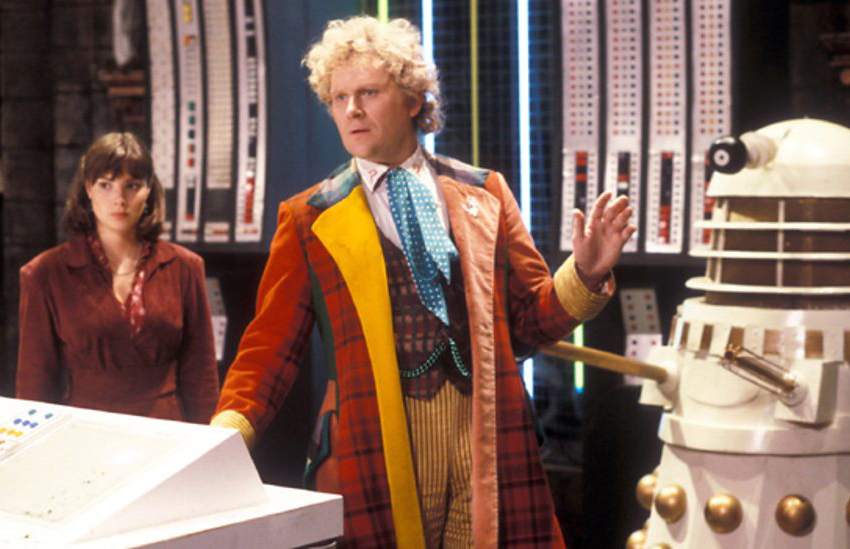
The Classic Doctor Who Twitch Marathon continues to chug along through the ages, with the stream now showing the 1980s psychedelic era of Peter Davison and Colin Baker. Many fans concur that the glory days of the sci-fi show were done and dusted by the time of the last two Doctors, that being Baker and Sylvester McCoy, with the show eventually being cancelled in 1989. It would then be seven years before we saw Doctor Who return to the screen (in a TV movie which remains highly underrated, in this writers’ opinion), and another nine years after that before Russel T. Davies rebooted the series with Christopher Eccleston at the helm.
But cut back to 1989, when 27 years’ worth of this British institution had accumulated to a form an extensive library of science-fiction storytelling. In my critical analysis of the future Doctor Who, I asserted that most the classic series had become unwatchable due to ill-ageing, and for the most part that is true. The effects are lame, the acting is hammy, and the storytelling can jump the shark so far it transcends time and space.
However, such fair generalisations should not be a reason to overlook the original run of the cult show. Doctor Who survives for a reason, and it’s not only because of the fans. Putting personal attributions aside, there are a handful of serials that I would confidently point a non-Whovian in the direction of, to prove not only was the show good, but at times could be great. Directing, acting, narratives, writing and effects that have survived the turn of the century. These positives can be found in classic Doctor Who.
With that said, I present to you the Top 10 serials of the original run of Doctor Who.
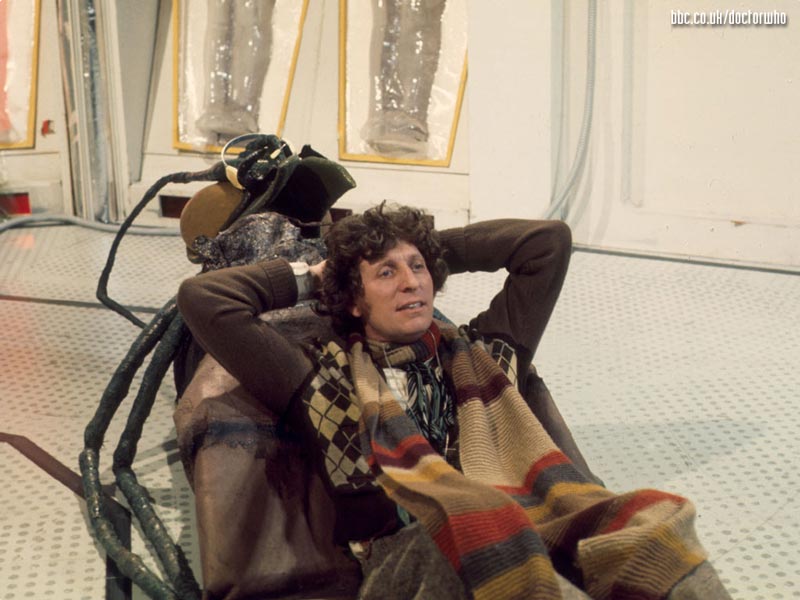
- The Ark in Space (Tom Baker, 1975)
Let’s start with the serial that Russel T. Davies deemed to be his favourite from years gone by. The Ark in Space is the first of two entries on this list to have been written by the late Robert Holmes, considered to be one of the greatest writers of Doctor Who. Initially based on a story by Jon Lucarotti, Ark in Space takes place ten thousand years in the future, where the insect-like Wirn have infiltrated the space station Nerva in order to absorb the cryogenically suspended humans and all their knowledge.
The combination of a thrilling narrative and Holmes’ near-untouchable writing, makes The Ark in Space a fine example of science-fiction storytelling. It is also a staple of the type of situation that we have come to see The Doctor engage in; a small group of humans trapped in a confined space, with nowhere to go and facing an impending danger (A scenario that Ridley Scott would perfect and bring to the big screen four years later). Ark in Space also gave us one of Tom Baker’s finest monologues, on his perception of humanity and what we have come to represent.
Though the visual effects may not have held up well over time, this serial remains a compelling watch and the first of many from a Doctor that would later become the most beloved by fans (that is until David Tennant comes along and sweeps everyone off our feet).
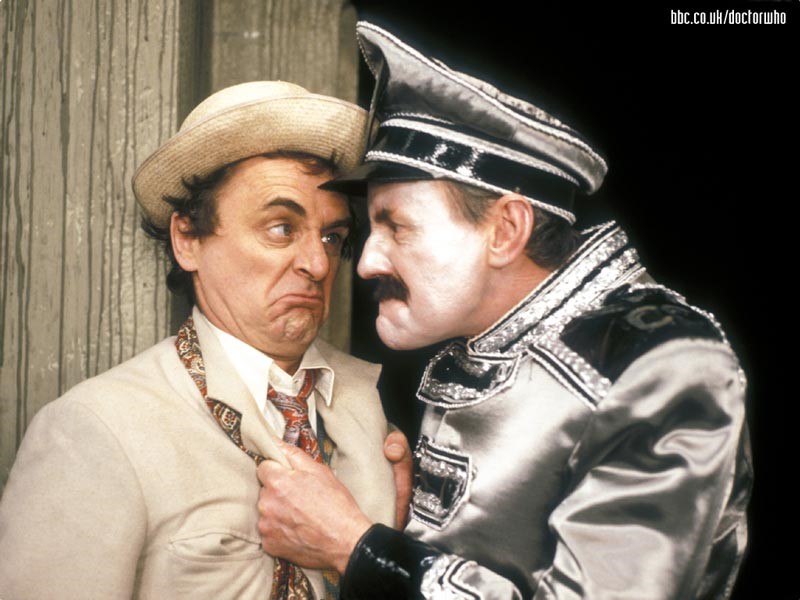
- Paradise Towers (Sylvester McCoy, 1987)
Most of classic Doctor Who has not aged well thanks to a myriad of factors. Cringeworthy acting, terrible effects, and laughable monsters to name a few. But sometimes, the multiplicity of these negatives can give way to something that one cannot help but enjoy. Enter Sylvester McCoy’s second story, Paradise Towers. Mel Bush, the Doctor’s companion, wants to go swimming. He takes her to Paradise Towers, a high-rise apartment in the future that has a swimming pool on the roof. Upon arrival, they have to deal with colour-coded teenage gangs, cannibal pensioners, bureaucratic caretakers, killer robot cleaners and crabs, and a booming voice in the basement.
The plot is absurd, and the acting is absurd. Actor Richard Briers received a great deal of criticism for his Chief Caretaker role, yet it does not seem out of place for the rest of the story, and it results in some hilarious interactions between him and McCoy’s Doctor. McCoy meanwhile, still in the process of finding his character, delivers a subtle and reserved performance that reinforces the general standing of the character in any given situation.
By this explanation, one would assume Paradise Towers falls more into the “so bad it’s good” category rather than being actually good. A fair assumption, but this ridiculous serial is still mighty fun to watch, and remains true to the spirit of Doctor Who. Well worth checking out, and a highlight of the later years for the show.
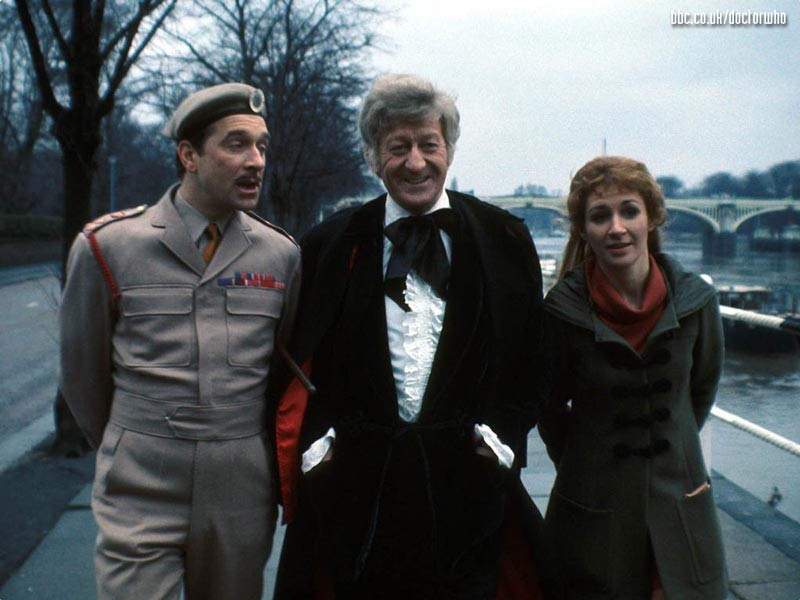
- Inferno (Jon Pertwee, 1970)
There are a lot of mixed feelings when it comes to Jon Pertwee’s first season of Doctor Who. Having been exiled to our planet by his fellow Time Lords and setting up shop with the United Nations Intelligence Taskforce (UNIT), the creative decision to ground the Doctor to Earth did give us more grounded stories pertinent to our planet, but it also restricted what sort of stories could be told. Regardless, there are some gems to be found during the UNIT years, and one of those is Inferno.
One of the few and last serials to be seven episodes in length, Inferno sees the Doctor trying to stop a drilling project from penetrating the Earth’s crust in pursuit of a new energy source. Threatened by an ooze that turns humans into monsters called Primords, the story results in the Doctor travelling to a parallel universe where the same situation is playing out, only now he has to deal with the forces of the fascist Republic of Great Britain.
Where Inferno excels is in its atmosphere, acting, buildup and payoff. Nicholas Courtney is at his best in the role of Brigadier Commander Lethbridge Stewart (and his dictatorial counterpart), while the interactions between Pertwee and the humans is compelling and provocative, sporting a political edge rarely seen on the show. While all this is happening. The noisy drill gets closer to the crust, leading into a climax that spells complete disaster for everyone. An exercise in suspense and human ambition, Inferno is well worth the watch.
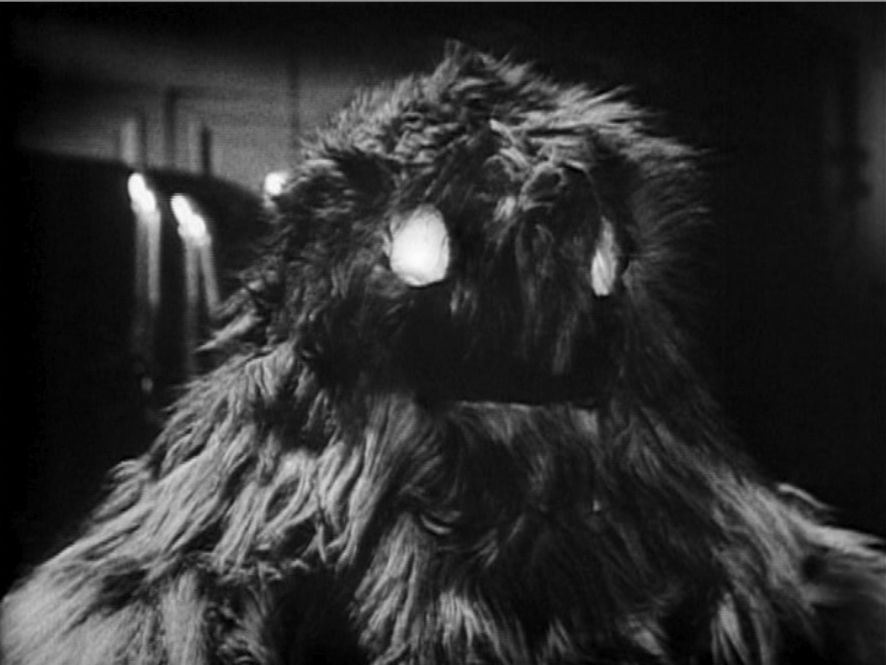
- The Web of Fear (Patrick Troughton, 1967)
The Web of Fear is a continuation from a previous serial entitled The Abominable Snowmen, in which Patrick Troughton’s Doctor confronted a malevolent entity known as the Great Intelligence (played by Richard E. Grant in the new series), and its army of robotic yetis as it took over a Tibetan monastery. This time, the intelligence has taken over London by way of the subway tunnels, with only the Doctor and the army to thwart its evil schemes.
On top of having a fantastic villain, The Web of Fear pushes the limits of how scary a children’s television show could get away with being. The Yeti remain some of the most iconic DW monsters to date thanks to their ominous presence and brute strength. The writing and visual effects for this serial have held up especially well, with it being delivered by a diverse range of characters that add a few interesting dynamics to this story.
The Web of Fear marked the first appearance of Nicholas Courtney in his role of then-Colonel Lethbridge Stewart, and it was only recently that all of the serial episodes were recovered by the BBC, as they had previously been lost since the 1980s. Great performances, a menacing villain, and plenty of scary moments, this serial is as thrilling to watch now as it was back in 1967.
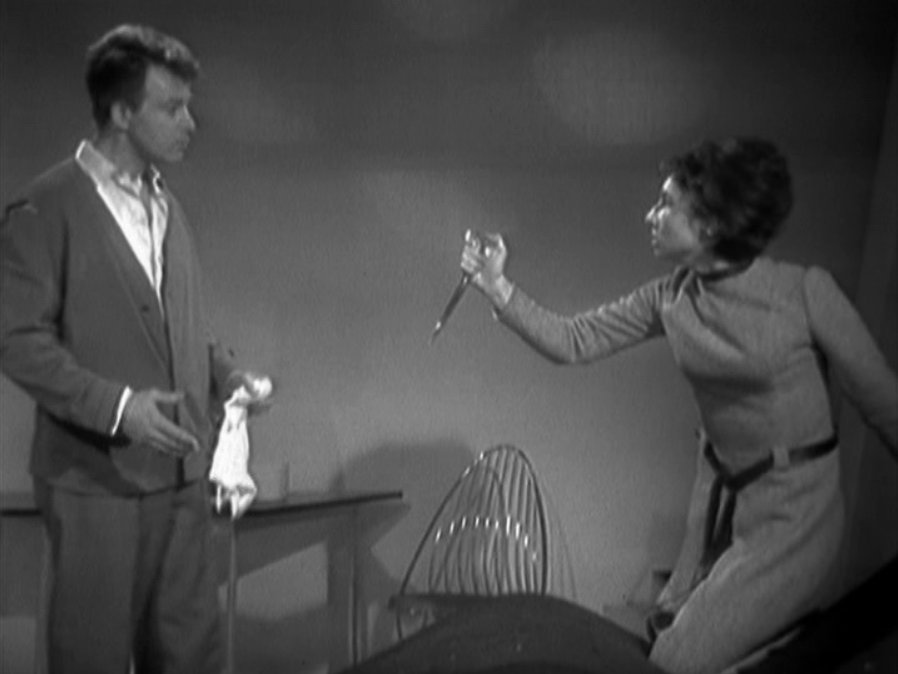
- The Edge of Destruction (William Hartnell, 1964)
Doctor Who was subject to a very rocky start back in 1963. The airing of the pilot episode was overshadowed by the assassination of President John F. Kennedy, and the BBC was unconvinced that the show would even get past the first season. The Edge of Destruction was a last-minute addition to the lineup to account for the final two episodes of the recording block, which itself was overshadowed by the gargantuan ten-episode story of some certain pepper pot-shaped aliens (more on those in a bit).
Written by David Whitaker in the space of two days, this short serial took place entirely in the TARDIS, with the Doctor and his companions slowly turning against each other by way of an unknown force. The synopsis and execution of this serial is downright Hitchcockian, making use of the confined space and, the then unfamiliarity between the characters, to tell a short story of suspense and suspicion that ultimately brings our heroes closer together. It cemented certain dynamics between the Doctor and his companions that are evident to this day, and helped establish the relationship between them and the audience for future stories. It is a brilliant serial that deserves our viewing and our respect.
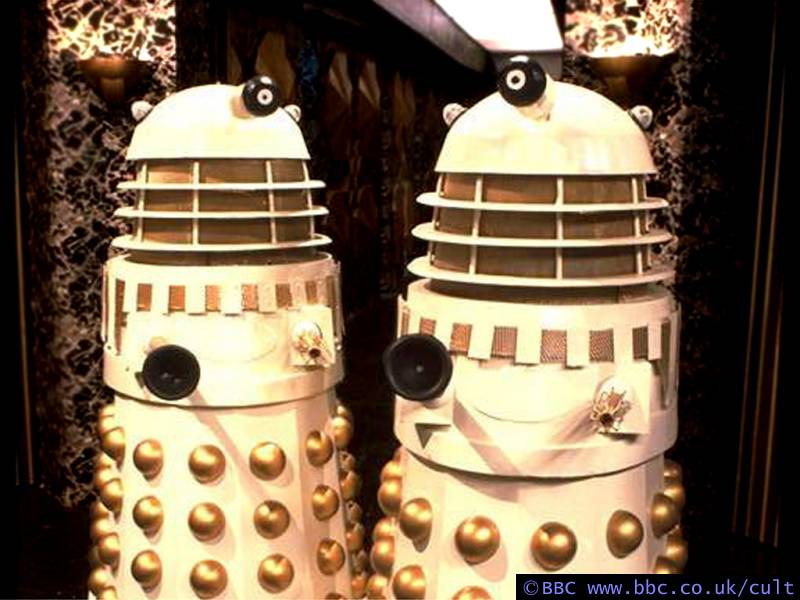
- Revelation of the Daleks (Colin Baker, 1985)
Now about those pepper pots.
Unarguably one of the defining icons of the show, the 1980s saw only a handful of battles take place between the Doctor and his archenemies, the Daleks. In fact, for each of the last three classic iterations of the character, he was confronted by them only once. Resurrection with Peter Davison, Remembrance with Sylvester McCoy, and for Sixth Doctor Colin Baker, Revelation of the Daleks. This serial is a fascinating and unique tangent in Doctor Who storytelling, a gothic and dark comedy tale which sees Davros, the creator of the Daleks, take control of a cryogenic facility on the planet Necros in an elaborate trap for the Doctor.
The serial is easily the best in Baker’s lineup, with excellent set design, a sinister musical score, and a deep dive into the mind of a monster which continues to scare children to this day. The relationship between Davros and his creations has evolved with every appearance of the character, and in Revelation, we are shown what lengths he will go to get what he wants, and what he is ultimately capable of. Include a dark and ridiculous plot and you have some great colourful sci-fi viewing from the 80s.
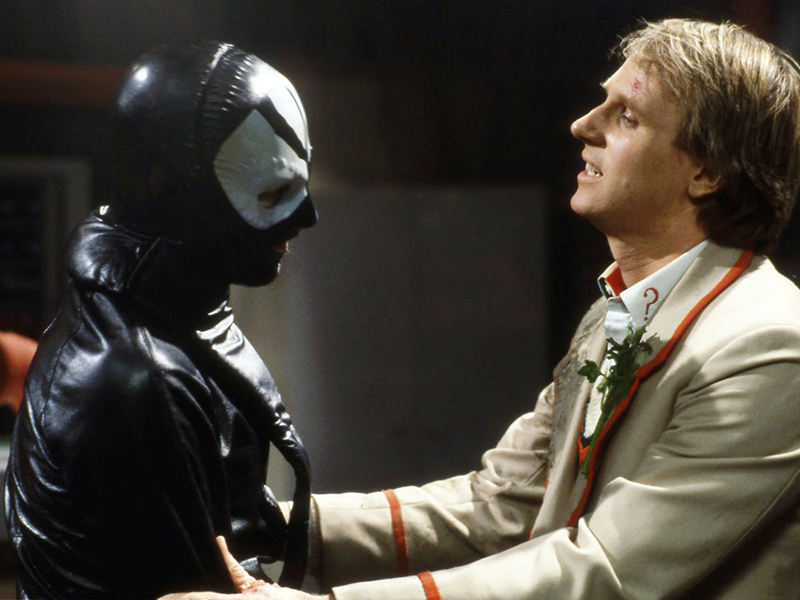
- The Caves of Androzani (Peter Davison, 1984)
The second story in this list to have been written by Robert Holmes, The Caves of Androzani marked the departure of Peter Davison’s departure from the role. And what a departure Holmes gave him. The Doctor and his companion Peri are poisoned upon arrival to the planet Androzani Minor, and in their bid to find a cure, are caught up in a military struggle between mining conglomerates, rebels and androids.
This is a high-energy narrative that keeps the adrenaline pumping from beginning to end. The cliffhangers to the first and third episodes are some of the best in the show’s history, and Davison gives a swansong performance of a man who will go to any length for the person he cares about. That person being Nicola Bryant, who also gives a sterling performance in the role of Peri Brown. Androzani would eventually overtake Tom Baker’s Genesis of the Daleks as the classic fan favourite, according to Doctor Who Magazine, but it also marked for many the beginning of the end of classic Doctor Who. Nevertheless, a fantastic serial to watch.
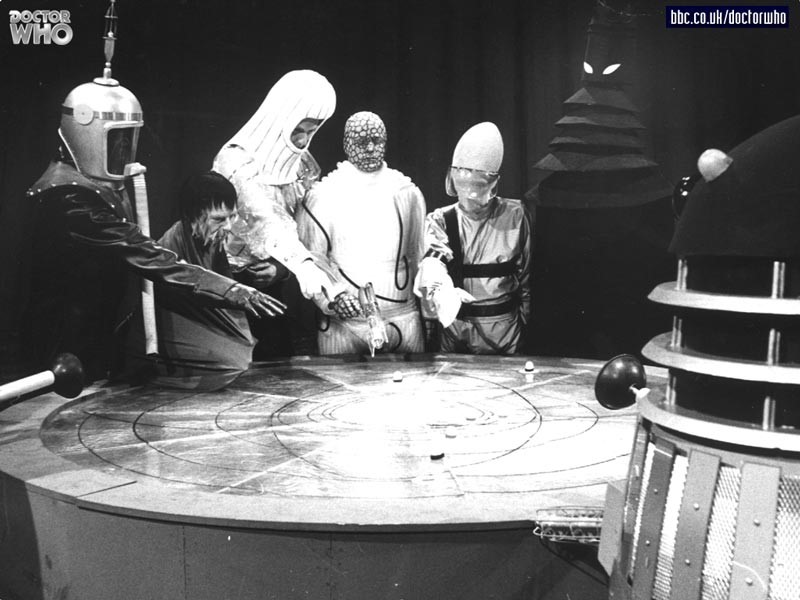
- Mission to the Unknown/The Daleks’ Master Plan (William Hartnell, 1965-66)
People underestimate how central the Daleks were to the early success of Doctor Who. Their introductory serial, simply entitled The Daleks, received an audience of ten million people, and cemented the show as a regular to the BBC lineup. The Daleks make their most number of appearances during the William Hartnell era, and no more is their popularity apparent than in the epic saga that was The Daleks’ Master Plan. This serial is so vast in scale and ambition that it even had its own prologue episode, separated by another four-part serial, so as to build anticipation for the forthcoming endeavour. Mission to the Unknown remains the only episode in Doctor Who’s history to not actually feature the Doctor or any of his companions.
Instead, it shows Space Security Agent Marc Cory uncovering a plan by the Daleks to find the pieces of and construct their most lethal weapon, the time destructor. This would then lead into a 12-episode epic, spread across three months between 1965 and 1966 that would see the Doctor and his companions hopping from planet to planet, from ancient Egypt to deep space, in their quest to stop the Daleks from unleashing chaos across time and space. This serial has it all. The return of past characters, actor Kevin Stoney giving a stoic performance in the role of egomaniacal Mavic Chen, and even the deaths of two of the Doctor’s companions!
Tying all of this up is William Hartnell at the height of his tenure as the title character, and the directorial talent of Douglas Camfield. The camerawork and overall aesthetic result in an almost cinematic experience, meaning that this serial will forever be remembered as one of the greatest.
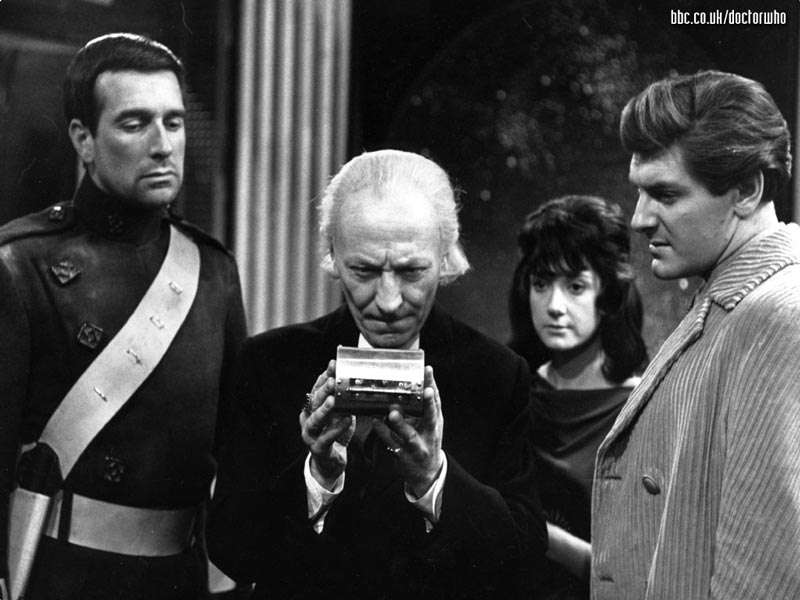
I say remembered because sadly, Mission to the Unknown, and the majority of The Daleks’ Master Plan, remain lost. These stories were the first to suffer being scrapped by the BBC in 1967, and only the second, fifth and tenth episodes are known to still exist. Until the rest pitch up in a basement somewhere, we only have the audio, some still shots, and fond memories to remind us of one of the Doctors’ most epic travels. Fingers crossed that they may eventually be found!
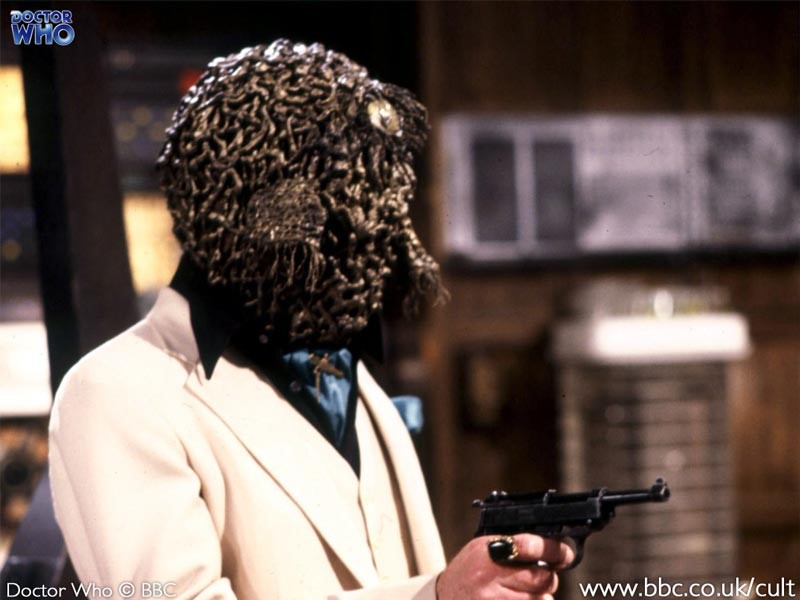
- City of Death (Tom Baker, 1979)
There is a great deal of interesting trivia behind the production and initial broadcast of City of Death. It was the first serial to feature filming outside of the United Kingdom, with the story taking place in contemporary France, and is the title bearer of the most-watched serial in the show’s classic run with over 16 million viewers. The script was edited by Douglas Adams, who would later reuse some of the story elements in Dirk Gently’s Holistic Detective Agency. And in one of TV’s great little moments, John Cleese and Eleanor Bron can be seen admiring the TARDIS as a work of art. Priceless.
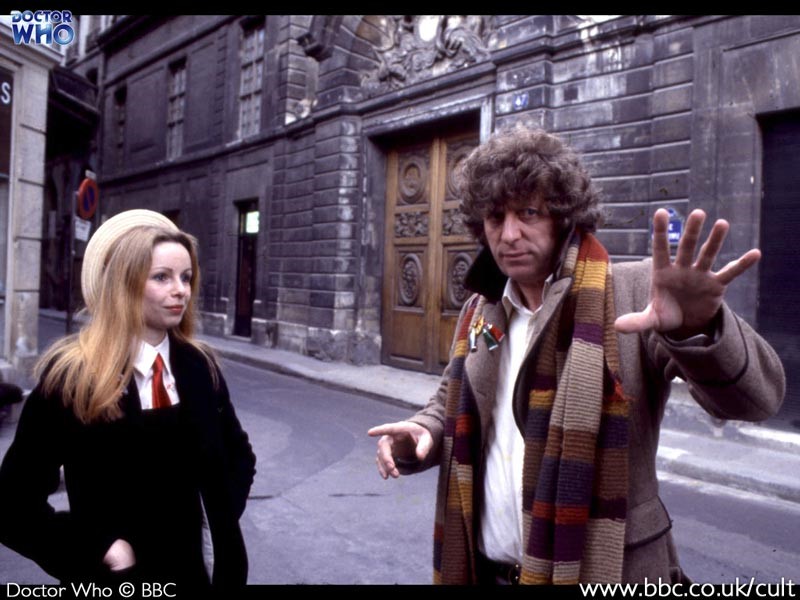
Arriving in Paris to view the Mona Lisa, the Doctor and fellow Time Lord Romana stumble upon a scheme by alien Scaroth, last of the Jagaroth, to sell forgeries of the famous painting to fund his time travel experiments. A scheme that threatens to derail the very creation of humanity. City of Death came at the height of Tom Baker’s tenure as the Doctor, and it is in this serial that we witness the thrilling and joyous personality so much people came to love and adore. Armed with Douglas Adams’ writing, a script which leans heavily on the comedic side and is now quotable by fans everywhere, Baker revels in his career-defining role as he tries to make sense of a complicated plot, and foil a villain that rivals him in charisma and charm.
While the digital effects have not stood up to the test of time, they are used minimally with the focus being more on character than on setting. The climax to the serial is hilarious. Without giving away anything, the Doctor is presented with a very simple solution to the conundrum at hand. While this may disappoint viewers what with the preceding buildup, but the style of writing and the overall mood of the story ensure that it remains coherent and consistent in tone. City of Death remains a fan favourite for obvious reasons, and would take the no. 1 spot in this list, were it not for a serial from the 1960s…
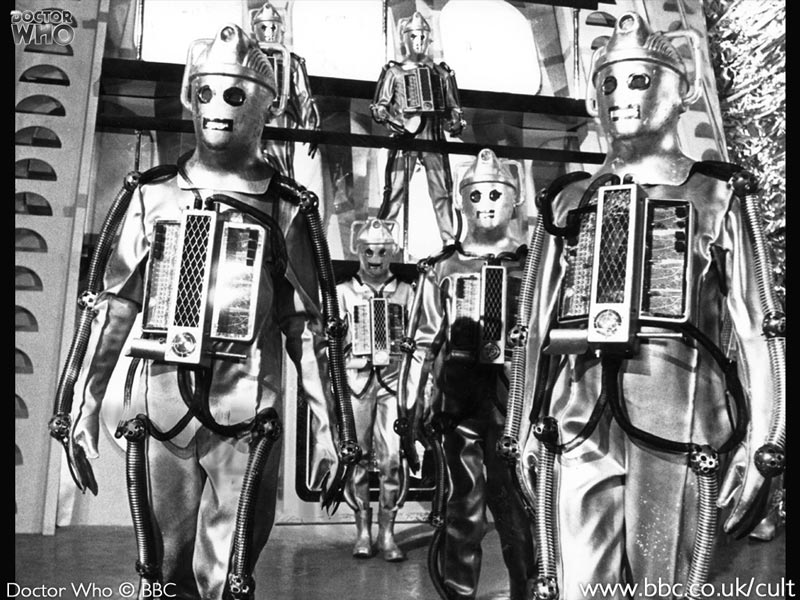
- Tomb of the Cybermen (Patrick Troughton, 1967)
I could conclude this list with just declaring Tomb of the Cybermen to be a perfect serial, but first, some interesting facts.
Failing to no longer exist according to a film audit in 1978, all four episodes of the serial were recovered and returned to the BBC by the Hong Kong Television Company RTV in 1992. The response to the recovery was immense, with the serial topping the subsequent VHS sales chart, and a viewing of the story at the 1992 BAFTA awards resulted in huge rounds of applause from the audience. Tomb of the Cybermen remains the earliest story of the Patrick Troughton era, as well the earliest story involving the Cybermen, known to still exist.
Patrick Troughton remains the most underrated of Doctors in the lineup. Say what you want about William Hartnell, but any replacement of his would have faced a battle for ownership of the role. Playing the role with a posture like Charlie Chaplin, with a wiser, patient and more kind personality than Hartnell, Troughton never delivered an unlikable performance. And in Tomb of the Cybermen, he came armed with a three-sentence summary of Doctor Who’s place in popular culture:
Our lives are different than anybody else’s. That’s the exciting thing. There’s nobody in the universe who can do what we’re doing.
The technical work behind the serial succeeds in rising above the limitations of the show’s general production. While remaining constrained to a soundstage, the camerawork and use of space result in not only a cinematic feel to the serial, but the photography and blocking include aspects that would remain with the show all the way into the 2005 revival. The minimal use of computer-generated effects in favor of practical work means that the show has aged extremely well. The visuals, such as props and locations, play into the simplistic elegance that these Doctor Who villains have come to represent. The musical score and use of sound effects, even though it’s just stock music nicked from original DW composer Ron Grainer, fulfill the duty of intensifying the story’s atmosphere and severity. Even the monochromatic film adds to that atmosphere, the coldness that is to be felt in the Cybermen’s tomb.
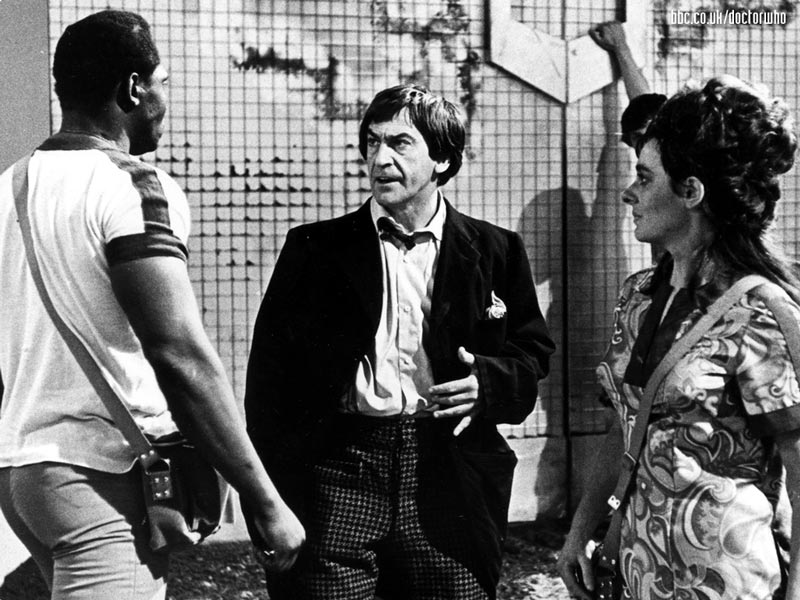
A tomb which the Doctor and companions Jamie and Victoria, accompany an archaeological expedition in exploring, and uncovering the reasons why the Cybermen supposedly died out all those years ago. But not all is as it seems. Not everyone in the expedition can be trusted, and the tomb itself hides a terrible secret. The story is well paced and the climax to each episode is appropriately timed. The cast does an excellent job of each portraying a particular human trait. Anxiety, ambition, confidence and so on (if you watch the serial, you can immediately work these out). And meanwhile the Cybermen present themselves as the cold and malevolent monsters that we know and love. The Cyber Controller, who makes its first appearance in this serial, is downright sinister.
Tomb of the Cybermen stands a truly great classic story of Doctor Who, and will always be my referral to any non-Whovian were they ready to take a trip in the TARDIS.
Do you agree with the list? What’s your favourite classic Doctor Who story? Mention it in the comments and we’ll discuss!
Last Updated: July 30, 2018






















Admiral Chief
July 30, 2018 at 13:22
Still haven’t watched a single episode
The Big Bad Wolf
August 1, 2018 at 12:49
Fair enough, it’s not for everyone.
The Big Bad Wolf
August 1, 2018 at 12:49
Fair enough, it’s not for everyone.
MindFog2287
August 1, 2018 at 06:10
I admire the attempt to create a new list. You make salient points in each of your arguments. I will just say that the fan favorites are the fan favorites for a reason – they’re the best stories. 🙂
Great piece though. I am biased toward Tom Baker, as he was “My doctor” growing up, so I would have made space for one of the following (which is best of these, I dont know) – Genesis of the Daleks (of course), Robots of Death, Face of Evil, or Talons of Weng Chiang. Maybe Horror of Fang Rock?
The Big Bad Wolf
August 1, 2018 at 12:49
The Talons of Wen Chiang almost made this list for being a great-looking Gothic costume drama. I especially do like Baker’s performance in it.
I can definitely see why Genesis of the Daleks would make any list. It is a high point for Baker and the character’s moral undertakings, and Michael Wisher as Davros is most excellent. But it suffers from pacing problems and for a story about the origins of the Daleks, there aren’t that many in them :’D
But all great episodes nonetheless. Thanks for the comment.
The Big Bad Wolf
August 1, 2018 at 12:49
The Talons of Wen Chiang almost made this list for being a great-looking Gothic costume drama. I especially do like Baker’s performance in it.
I can definitely see why Genesis of the Daleks would make any list. It is a high point for Baker and the character’s moral undertakings, and Michael Wisher as Davros is most excellent. But it suffers from pacing problems and for a story about the origins of the Daleks, there aren’t that many in them :’D
But all great episodes nonetheless. Thanks for the comment.
MindFog2287
August 6, 2018 at 18:37
It’s true about the Daleks, something I hadn’t really ever thought about – but this was really Davros’ story. As for the pacing problems, interestingly enough I recently saw the “Omnibus Cut” in the theater. It was 90 minutes. You’d have thought strategically cutting the six stories down to a 90 minute movie would have helped. It didn’t. It ran WAY too quickly and especially toward the end, left a lot unexplained. Cheers.